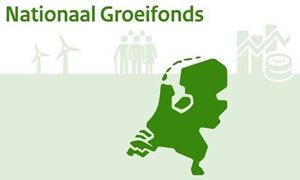
The Radboudumc has received almost 180 million euros from European grant funds within the framework of Horizon2020 in the years 2014-2020. This makes the Radboudumc the Dutch umc that has managed to secure the highest amount of funding. This makes the EU an important source of income for researchers at the Radboudumc. Meanwhile, the successor of H2020, Horizon Europe, has started for the period 2021-2027.
Horizon2020 is the European funding program for Research and Innovation in Europe. The program ran from 2014 to 2020, and had a total size of over 70 billion euros. The program offers opportunities for any organization or entrepreneur active in research, technological development and innovation in an international context, both within and outside the health sector. The program contributes to thinking about social issues that are relevant across Europe.
The Netherlands received over five billion euros in funding from H2020: 7.8% of the H2020 budget spent. That share is high; the Netherlands is the sixth recipient of funding from H2020. Of this, 178.6 million euros went to the Radboudumc. This makes the Radboudumc the umc that managed to secure the highest amount of funding, almost 20% of the Radboudumc's applications were honored.
Looking at the theme Health, which also includes IMI (Innovative Medicines Initiative), the Radboudumc is in second place internationally. The Radboudumc only has to surpass the French Inserm, the prestigious institute for health and medicine. This research is always done in collaboration in European top consortia.
Research into pancreatic cancer, tuberculosis and rare diseases
PANCAIM is one of the 59 projects that have been awarded funding by the Radboudumc. In it, Henkjan Huisman coordinates research into pancreatic cancer using AI. New knowledge should lead to earlier detection, better prognosis and longer survival of patients with pancreatic cancer. The BIG PICTURE project is also an AI research project funded by H2020. To accelerate the developments of artificial intelligence (AI) in pathology, a European consortium is going to develop a database in which pathology data can be shared. This is being done under the leadership of Katrien Grünberg and Jeroen van der Laak. They will receive 70 million euros for this.
Another project is Unite4TB, which is dedicated to the fight against tuberculosis. Martin Boeree is trying to further develop new treatment options for tuberculosis and make them available to patients in a broad partnership of no less than 30 partners. A final example is the SOLVE-RD research program, in which Nicoline Hoogerbrugge, Han Brunner and Alexander Hoischen, among others, are looking for better diagnostics for rare diseases (RD). Their work has already resulted in a large number of publications.
Looking to the future: Horizon Europe
In 2021, the new European program, Horizon Europe (HEU), was launched with a budget of 95.5 billion euros for the period 2021-2027. Horizon Europe builds on the success of Horizon 2020 for the period 2021-2027. With Horizon Europe, the European Commission (EC) wants to increase Europe's competitiveness by stimulating science and innovation. In addition, the EC wants to challenge industry and academia to work together to make further strides in finding solutions to societal issues that affect Europe as a whole. Researchers can find more information here.
More information
Pauline Dekhuijzen

wetenschaps- en persvoorlichter


_1.jpg?width=500&height=333&ext=.jpg&type=BlockColumn1Zoom1)



